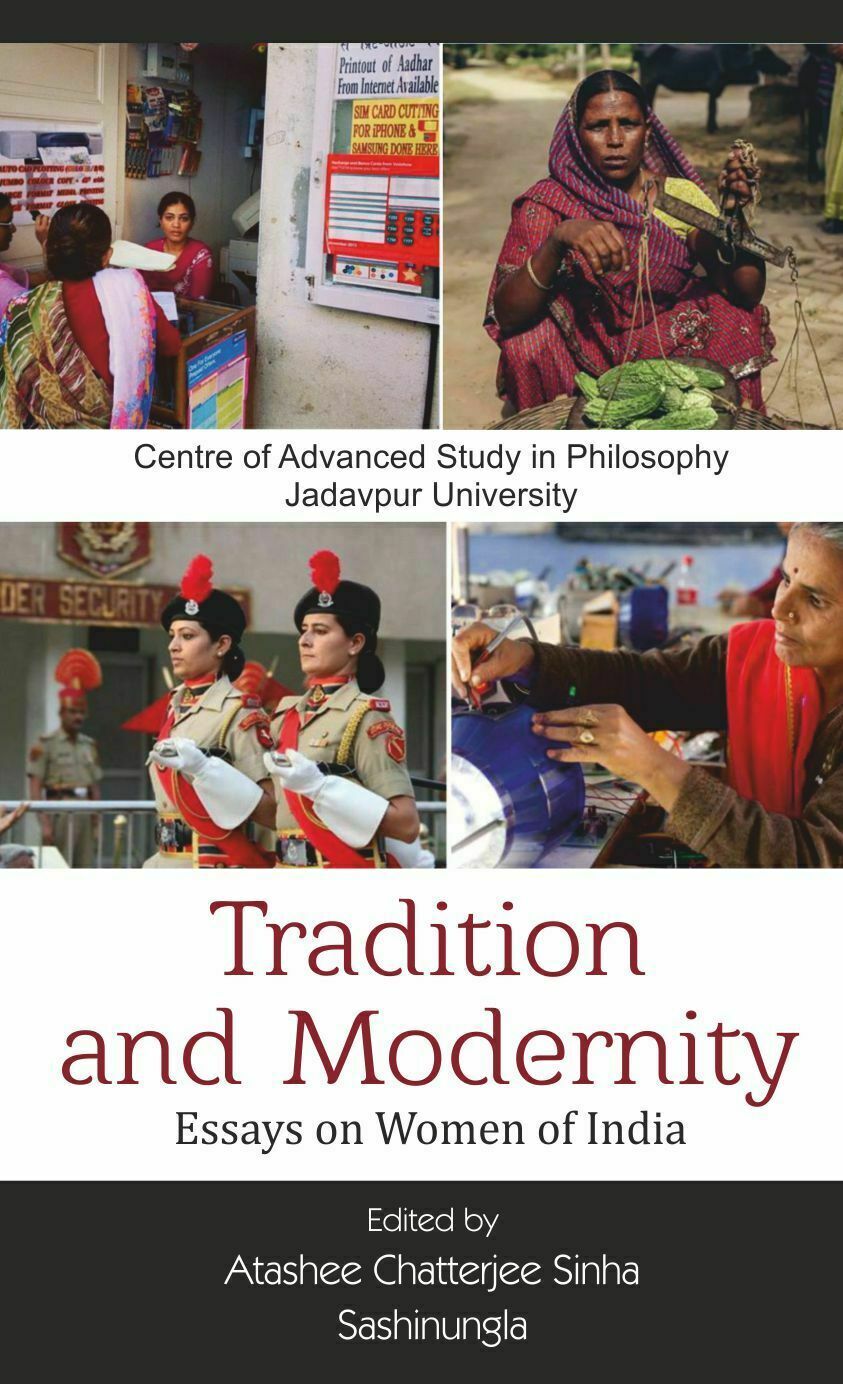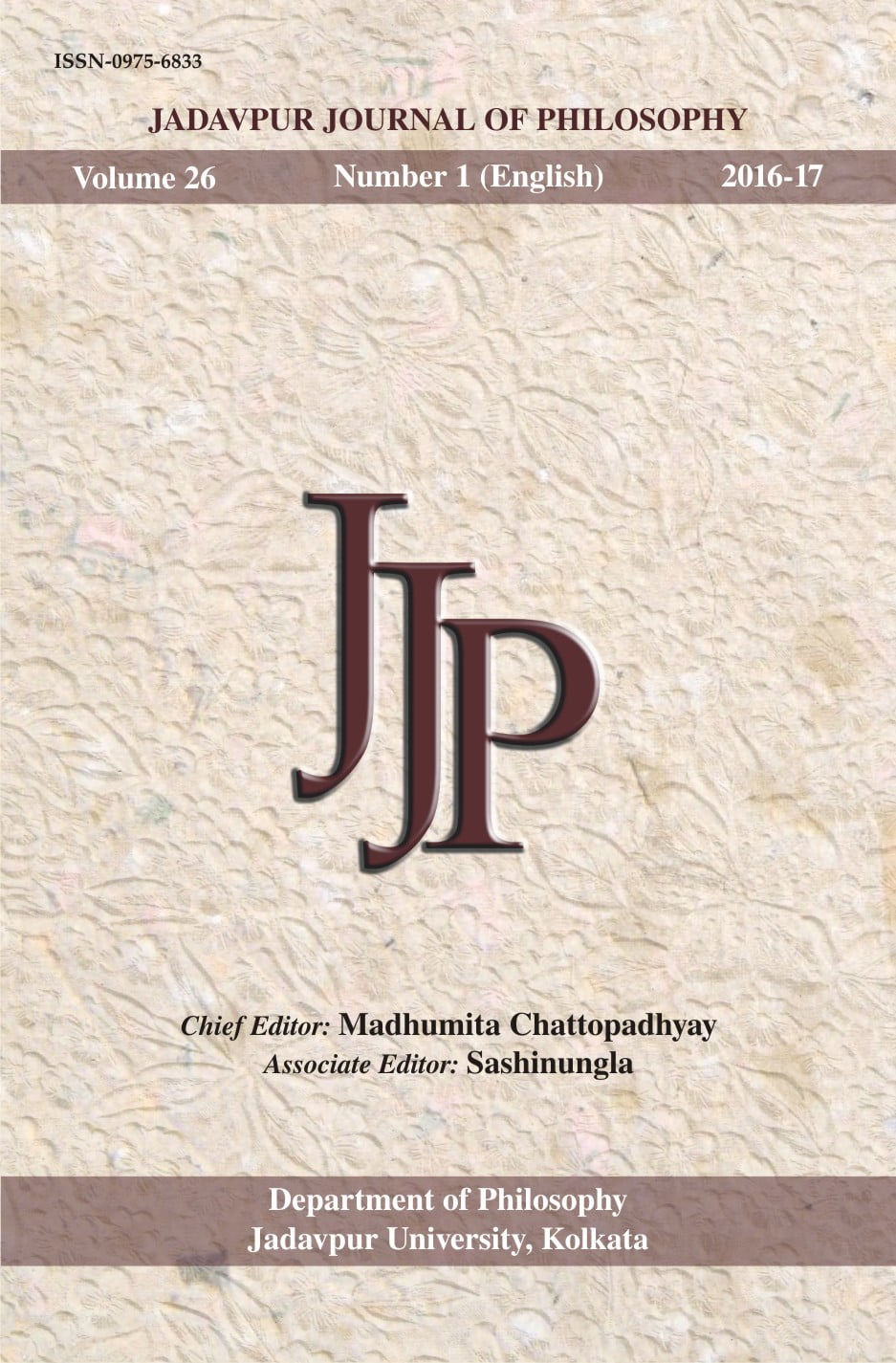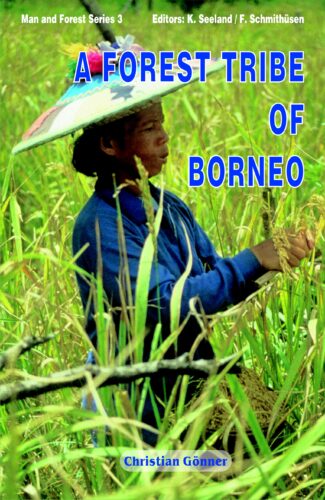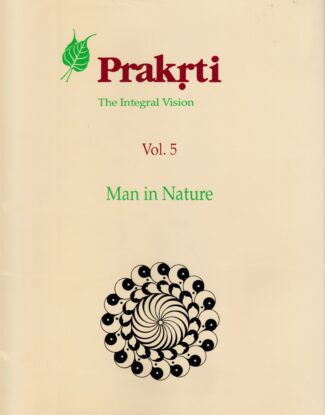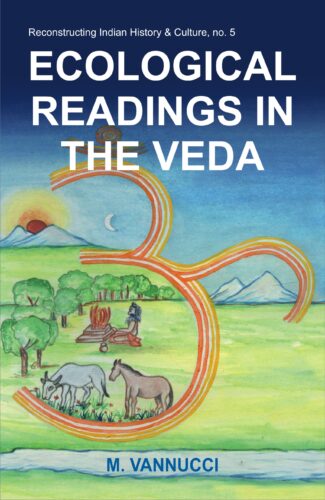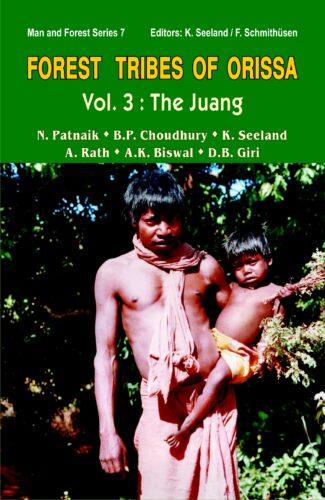
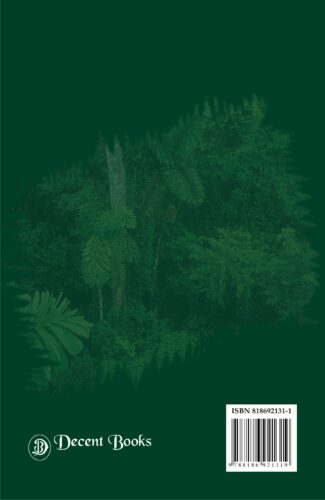
Environment Preserva...
Environment Preservation
A Philosophical Critique by: SashinunglaThe dominant ethical understanding and its preservation strategy is erroneous in itself to serve us with a more evaluative ethics to the present environmental crisis because its idea of Nature itself can also tend to be limited. The author explores the traditional tribal understanding of the close correlation between man and his environment for a new dialogue in philosophy.
₹280.00 Original price was: ₹280.00.₹252.00Current price is: ₹252.00.
ISBN: 9788186921319
Year Of Publication: 2005
Edition: 1st
Pages : viii, 152
Bibliographic Details : Bibliography; Index
Language : English
Binding : Hardcover
Publisher: Decent Books
Size: 23 cm.
Weight: 450
In an integrated and comprehensive framework, Environment Preservation: A Philosophical Critique takes a critical look at the increasing literatures and specific attempts at environmental preservation. The dominant ethical understanding and its preservation strategy, according to the author, is erroneous in itself to serve us with a more evaluative ethics to the present environmental crisis because its idea of Nature itself can also tend to be limited. The author turns away, therefore, from the sole western anthropocentric polemic and explores the traditional tribal understanding of the close correlation between man and his environment for a new dialogue in philosophy. The book will be imperative both to students at various undergraduate and post-graduate levels as well as to researchers. It will also interest anyone who wants to delve deeply into the philosophical issues of Nature preservation..
Preface
1. Introduction
2. Concept of Environment Preservation
3. Nature vs. Environment
4. Critique of Preservation Schemes
5. The Ao vision of Nature Preservation
6. Conclusion
Bibliography
Index
- Sale!Forest Tribe of Borneo by: Christian Gonner
₹800.00Original price was: ₹800.00.₹720.00Current price is: ₹720.00.Here is the third volume in the series Man and Forest: a series trying to highlight the relevance of indigenous knowledge of various tribal communities in the sustainable management of forests/local resources against the growing challenges of environmental hazards and a declining resource base. The volume takes the reader to the Dayak Benuaq village of Lempunah in Borneo (East Kalimantan, Indonesia) where, for over three hundred years, the local tribal population has made extensive use of its forest resources. More than a hundred locally-differentiated rice varieties and 150 other crops are cultivated over a mosaic forest of 9,200 ha. Besides maintaining a high level of bio-diversity, Lempunah villagers are managing an enormous reservoir of flora and fauna for their extended subsistence economy, including trade with various forest products over long distances. Market fluctuations and other uncertainties here are coped with by resource diversification and a high dynamic flexibility in switching between the use of resources. Together with vivid descriptions, Christian Gonner offers an insightful analysis of local resource use patterns, covering swidden agriculture, mixed forest gardens, rattan gardens, rubber gardens, and the non-cultivated forest in-between and temporal and spatial aspects of life in Lempunah. Christian Gonner has, for this study, applied ethnological, ecological, and geographical field-research methods.
- Sale!Prakrti (Vol. 5) by: Kapila Vatsyayan
₹1,400.00Original price was: ₹1,400.00.₹1,260.00Current price is: ₹1,260.00.PRAKRTI : The Integral Vision explores the concept of the primal Elements (Sky, Air, Fire, Water, Earth, etc.) which has governed and determined the evolution of civilizations and cultures. This 5-volume collection is the outcome of a series of five successive but inter-locked seminars culminating into cross-cultural, multi-disciplinary understanding. The First Volume, Primal Elements: The Oral Tradition, focuses attention on the articulation of cohesive communities communicating with the Elements in continuous unceasing dialogue. To them the nature is not a matter of intellection; it is a question of life here and now. This is manifested in their primary myths and rituals which sacralize nature so that man can live as an integral part of the Universe. The Second Volume, Vedic, Buddhist and Jain Traditions, centres on the texts, probing deep into the Vedic rituals, Upanisadic philosophies and Jyotisa sastra. There is a prodigious consideration of the concept of maha-bhutas in Buddhism and Jainism. It also brings forth the many covergences and divergences of the view-points between and amongst these different streams of Indian thought. The Third Volume, The Agamic Tradition and the Arts, examines systematically the manifestation of the Elements in the Indian arts and their Agamic background. From the different vantage points of the architect, sculptor, painter, musician and dancer, the field is reopened here to discern the structure of the arts at its primal level. Experiences of the transformation of the gross to the subtle and the theories of aesthetics and cultural ecology emerge from such a captivating view-point. The Fourth Volume, The Nature of Matter offers a much-needed critical appraisal of modern scientific concepts with reference to traditional thoughts. It contains invaluable discussion on quantum theory and elementary particles, evolution of living matter, nature and function of matter, scientific philosophy and Buddhist thought, Sankhya theory of matter, ancient and medieval biology, mysticism and modern science, traditional cosmology, matter and medicine, matter and consciousness, etc. The dialogue created between the method of science and the method of speculation is invigorating. The Fifth Volume, Man in Nature, is a coming together of cultures and disciplines. Enchanting in their own way, the international community of scientists, philosophers, anthropologists, ecologists and artists, share in this volume the myths and cosmology of their respective societies and cultures. There emerges a most meaningful dialogue between those who live with the myths of primordial elements and those who have modified the tools of science to investigate the nature of matter. This 5-volume set, first of its kind, produced by the most distinguished specialists in the field, should enjoy a wide readership amongst philosophers of many different persuasions, scientists, theorists of art and culture, particularly ecologists and anthropologists seeking new insights into the phenomena of Nature.
- Sale!Ecological Readings in the Veda by: Marta Vannucci
₹600.00Original price was: ₹600.00.₹540.00Current price is: ₹540.00.The Vedas are indisputably among the oldest of mankinds documents. Which Dr. Marta Vannucci rummages through to address a highly enigmatic question: How man evolved as Man: thinking, discriminating, thought-communicating? Or, yet more specifically, how did he come to identify cause-effect relationships of living-beings: both among themselves and with their environment? In looking for answers, she discovers profound biological, physiological, and ecological insights in Vedic writings which she projects here, with coherent analyses and prolific textual references. Dr Vannucci, who has studied Indian sacred texts for about twenty years, is perhaps the first ever biologist to explore the ecological validity of Vedas. With her critical Florentine mind and five-decade-long involvement in scientific methodologies, she interprets the complex Vedic verses in her thematic effort to decipher the ancient code with a bio-ecological key -spelling out, contextually, the Matter-Energy principles (embodied in Lord Agni) and Life-Hope principles (personified by Lord Savitr). Also setting out a comparative perspective on Vedic expressions of ecology and its contemporary worldview, the author suggests that the essential difference between the two stems not from the perception of reality, but from the manner of their theorizing. It is a painstakingly documented work, with a large-scale glossary of Sanskrit/ technical words and extensive bibliographic references. And also a foreword by a cultural scholar of Dr Kapila Vatsyayans eminence.
- Sale!Forest Tribes of Orissa Vol. 3: The Juang by: Nityananda Patnaik, B.P. Choudhury, Klaus Seeland, A. Rath, A.K. Biswal, D.B. Giri,
₹900.00Original price was: ₹900.00.₹810.00Current price is: ₹810.00.In the management of renewable resources, forests have undeniably a vital role, and today, as never before, their conservation is an urgency. In view of this dire necessity the series Man and Forest tries to highlight the relevance of indigenous knowledge of various South Asian tribal communities in the sustainable management of forests/local resources more specially against the growing challenges of economic development vis-à-vis environmental hazards and a rapidly declining resource base. A scientific inquiry into indigenous knowledge is an effort to discover/rediscover the tribals’ traditional modes of production and conservation. For them it is the only source to cope with the problems of modernity affecting their lives and precarious environments. Forest Tribes of Orissa: The Juang is the seventh monograph in the series Man and Forest and, after the publication of an account of the forest world of the Dongaria Kondh in 2002, and the Kuttia Kondh in 2006. Being a tribal community in transition, the authors have tried to document and thus safeguard its local traditional knowledge of conservation, use and management of forests and natural resources. They give an account of how the Juang classify trees and other plants, hills, forests, crops and animals. Their subsistence economy, agricultural system, social organization, religious beliefs and other important socio-cultural aspects of forest life have been extensively treated. The lifestyle of this tribal community is finally reflected on the background of forest policy and the impact it has on their livelihood. The present book is, as most of the volumes in the series, the outcome of nearly ten years’ research venture involving an interdisciplinary, intercultural team of sociologists, ethnobotanists, and social anthropologists
- Sale!Indigenous Knowledge, Forest Management and Forest Policy in South Asia by: Klaus Seeland, Franz Schmithusen,
₹750.00Original price was: ₹750.00.₹675.00Current price is: ₹675.00.Reflecting the latest findings of a large research project that began about a decade ago this volume, the 5th in the ongoing Man and Forest series, highlights the relevance of indigenous knowledge of various South Asian tribal and rural communities in the sustainable management of forests and local resources more specially against the growing challenges of economic development vis-a-vis environmental hazards and a declining resource base. Not only the volume reiterates the relevance of indigenous knowledge as a development tool in this age of standardized, modern know-how applications, but also illustrates its enormous impact on the social development in tribal and rural areas. Not just in India but in the adjacent countries of Nepal and Bhutan as well are analysed forest policy issues. In these countries, particularly in the current scenario of regulation, the authors emphasise of both collective initiatives at the grassroots level and securing the locally accepted patterns of livelihood for the tribal and village communities. The volume includes widely varied case studies on the role of indigenous knowledge in forestry, community living, and joint management of local natural resources. This book consists of 17 papers, based on cross-cultural, interdisciplinary investigations of well-known scholars of forest management, ethno-botanists, social anthropologists and of the members of several local NGOs involved in either community forestry or village development programmes.


